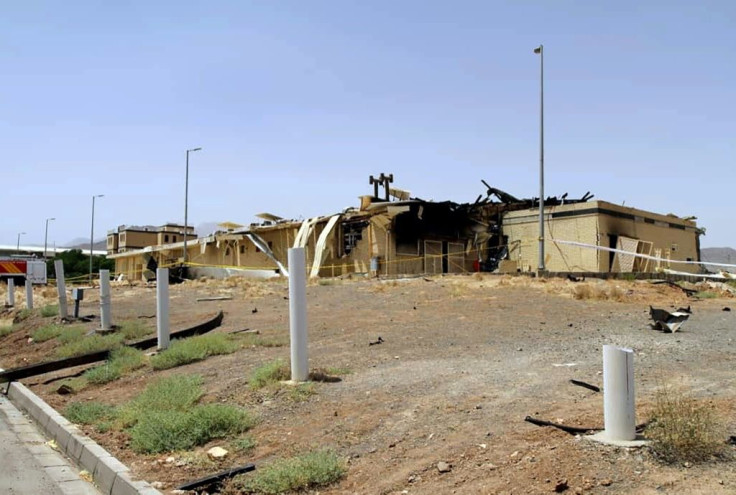Explosion, Fire Damages Iran's Uranium Enrichment Natanz Nuclear Complex, Retaliation Threatened Against US, Israel

KEY POINTS
- The Natanz complex is Iran's largest uranium enrichment facility
- New centrifuges that can process uranium 50 times faster were being built
- It was unclear whether the explosion and fire damaged the underground portion of the facility where most of the enrichment activity is accomplished
Iran on Thursday blamed “hostile countries” for an explosion and fire at its Natanz nuclear complex, destroying an above-ground facility believed to house a new centrifuge production plant.
No one was injured and no radiation was released from what Iran’s Atomic Energy Agency described as a shed. The complex is about 155 miles south of Tehran and is Iran’s largest enrichment facility.
— Inst for Science (@TheGoodISIS) July 2, 2020
Iran cited Israel and the U.S. as the possible “hostile countries,” threatening retaliation if any “red lines” were crossed. Israel and the U.S. conducted a cyberattack on the facility more than a decade ago that set Iran’s nuclear program back at least a year.
Iran acknowledged a fire ripped through its main nuclear-fuel production site, but it was unclear whether the incident damaged the underground portions of the facility where most of the work is believed done.
The New York Times reported Thursday’s incident followed a series of unexplained fires in recent days and came six days after an explosion near the Parchin military complex where Iran is suspected of carrying out tests on nuclear warheads. Iranian officials blamed the Parchin explosion on leaking gas tanks.
A group identifying itself as Cheetahs of the Homeland claimed responsibility for the Natanz incident. It described itself as part of “underground opposition with Iran’s security apparatus.”
The Times quoted a “Middle Eastern intelligence official” as saying the explosion was caused by an explosive device. Iran denied sabotage was involved.
Behrouz Kamalvandi, spokesman for Iran’s Atomic Energy Organization, said on state television the incident would be investigated thoroughly. He said the incident would not disrupt enrichment activities.
Iran had stepped up its nuclear program in recent months in response to U.S. sanctions that ramped up after Washington pulled out of the 2015 multination agreement that had set limits on Tehran’s enriched uranium production.
U.S. Secretary of State Mike Pompeo recently ordered new efforts to disrupt Iran’s activities and told the U.N. Security Council on Tuesday Iran’s new centrifuges that would allow Tehran to enrich uranium 50 times faster.
© Copyright IBTimes 2025. All rights reserved.






















